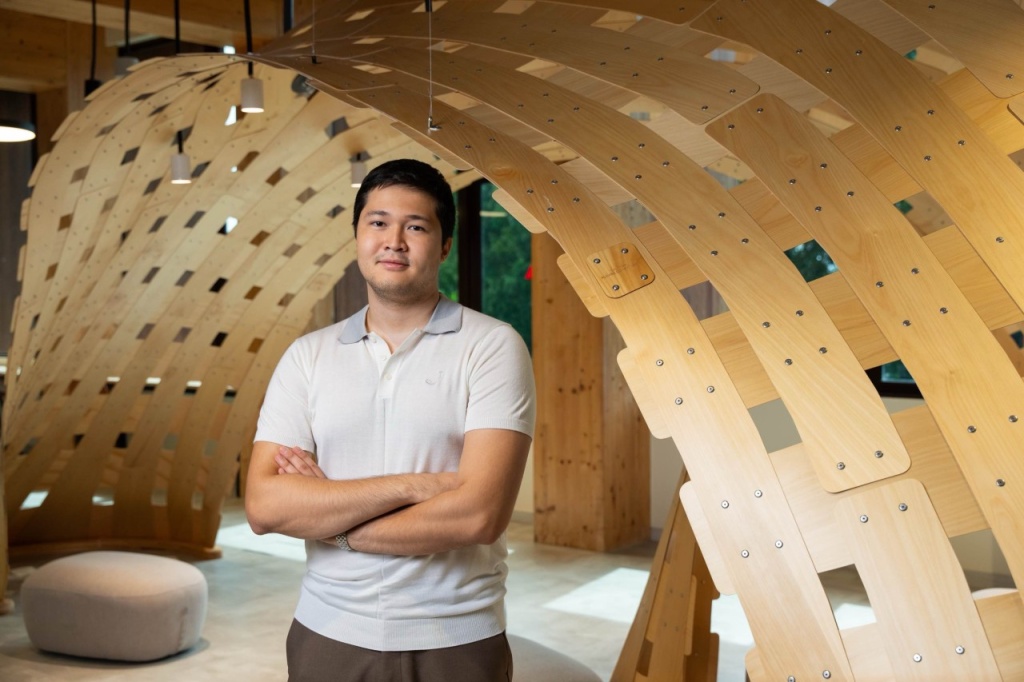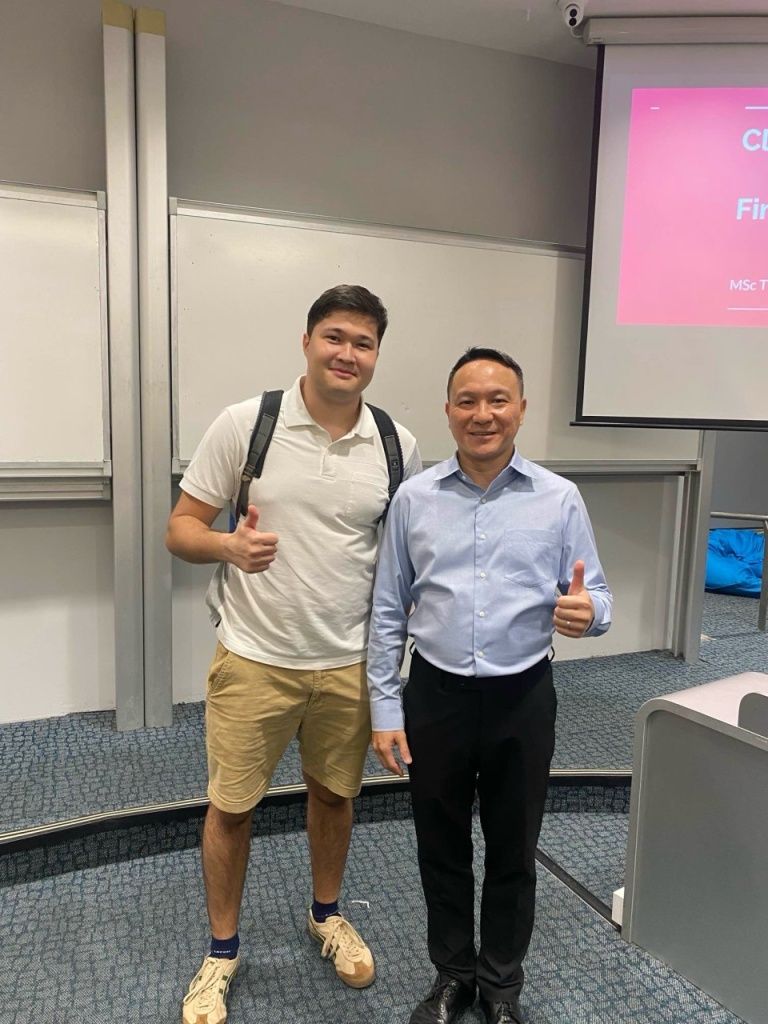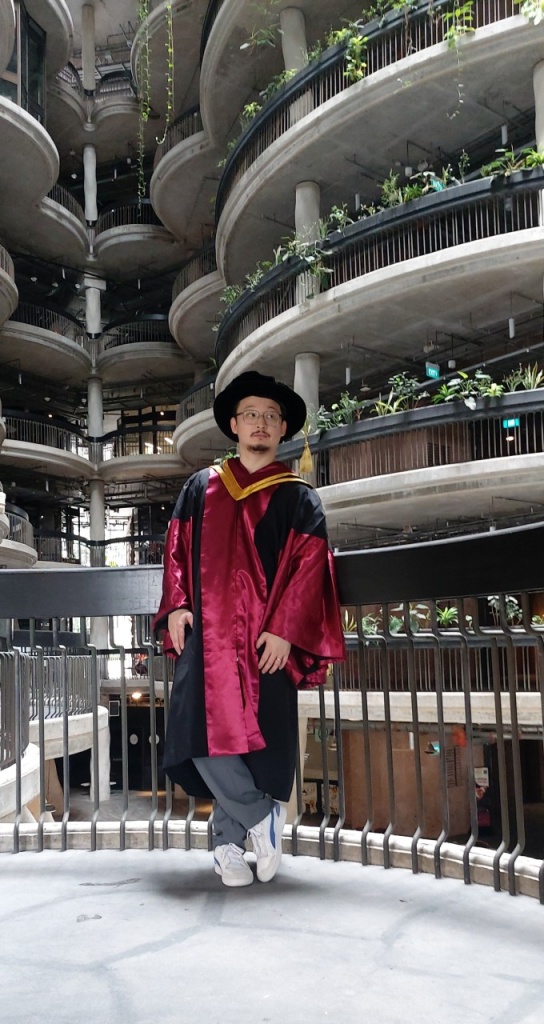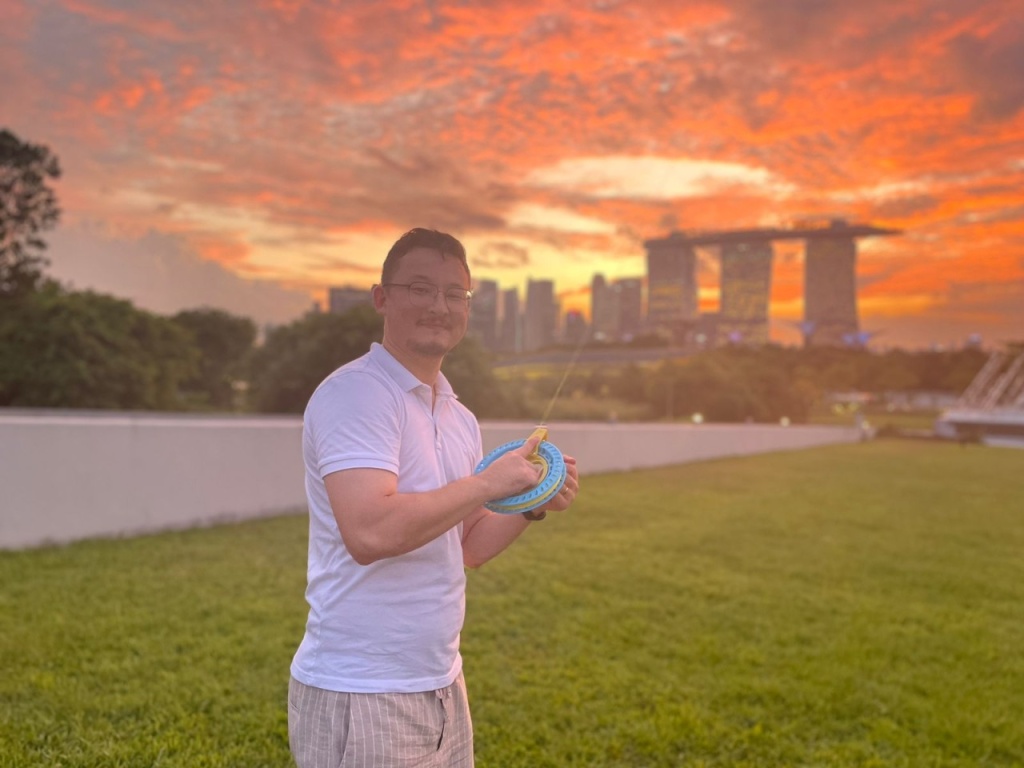Nanyang Technological University is one of the best universities in Asia. In this material we tell how Kazakhstani students study at NTU, why they chose Singapore, and what they advise to those who want to enter a top university.
Dias Baimukhanov, 23 years old, city — Singapore, Product Manager at redflags.ai, linkedin

About choosing a university
I applied to several universities — in the UK, Finland, and Saudi Arabia. I had a classic list: a couple of top universities and several less prestigious ones, where the chances of admission were higher. At the last moment, without special expectations, I submitted documents to Nanyang Technological University in Singapore. The motivation was simple: the program lasts only one year, the university is in the top-15 of the world ranking and provides generous grants.
Singapore fascinated me since childhood, after watching an episode of “Orel and Reshka”. With age, I became interested in all of Southeast Asia — a fast-growing and promising region. In addition, I conducted a small survey among Kazakhs studying abroad and realized that the cost of living here is lower than in major cities of Europe and the USA.
About admission
I went through several rounds of interviews conducted by alumni of the program and current professors. The questions were mainly about motivation: why I chose Singapore and NTU, why exactly this program, what I plan to do after graduation.
The interview is the key stage of admission. Here it is important to be able to adapt to the questions and the interviewer, to study in advance the history of the university and the career paths of alumni, and also to clearly understand what you want to get from the program.
To obtain the grant, I had to go through a separate interview with a committee of professors and solve test tasks. In my case it was a business case and an essay of choice. The business case was standard, and the essay topic was the comparison of the development of Kazakhstan and Singapore as economically similar states.
The most important is that recommendations and extracurricular achievements exactly correspond to the program and the university. If you have a technical profile and experience, you need to clearly show what the master’s program will give and provide relevant extracurricular activities.
With business programs it is more difficult: you should mention entrepreneurial experience. Even if you have not launched large IT products or businesses, you can always indicate personal projects, startups, social activity. If you are motivated and proactively engaged in something useful at work or within personal projects, you already have good chances of admission.
The set of documents was standard: IELTS, motivation letter, transcript with good grades, recommendation letters and CV. I began the preparation six months before applying. I passed IELTS without problems thanks to the English-speaking environment at Nazarbayev University. I immediately decided not to take GRE/GMAT and focused on the motivation letter and CV. At the same time, I was developing a startup and doing some entrepreneurship, which greatly helped when applying to NTU.
About features of studying
I expected a small workload, since the program is more about business, but in Asia it is not like that: everywhere exams, pitches, business cases. Even for the simplest subjects you have to pass written exams.
The workload was adequate, since the course is designed for working professionals. I calmly combined studies with work in a Kazakhstani IT company. But in technical specialties it is different: acquaintances in bachelor’s and master’s were heavily loaded. For us it is normal to combine study with work, but for Singaporeans it is unusual. They think like this: if you study, you must give 100% of your time to education.

When I name my specialty, many react with distrust until they find out who teaches us. Everyone understands that business programs rarely give something fundamentally new, and the main value is in professors and networking. I do not have a classic MBA, but a startup-oriented program. All professors are partners of venture funds, founders of startups with successful exits, or serial entrepreneurs.
Assessment in most courses is loyal and mainly depends on the exam. The university encourages honest and open feedback: professors give detailed feedback, and students at the end of the course evaluate professors. What I especially remember is how willingly professors make contact: you can discuss ideas over coffee, get advice on project development or even ask for career support and contacts.
About opportunities for students
NTU is considered a target university in Asia. This means that top companies primarily consider NTU graduates. Such status in Singapore is also held only by NUS.
A separate topic is job fairs. Companies such as Blackrock, Citadel, Morgan Stanley, Bloomberg, Alibaba, Huawei often participate in them. Many organizations arrange exclusive events only for NTU students.
In addition, students have access to several libraries on campus and hundreds of online resources. Career building is also helped by the university Career Center with an exclusive job board, free career consultations and a mentor-matching system.
Recommendations
An NTU diploma is an excellent opportunity to start an international career. But one diploma is not enough. It is important to develop beyond the university — to gain international experience through internships and hackathons, to take courses and certifications, to engage in networking and make your own projects.
I advise schoolchildren and students to approach the application process thoroughly: personalize each application and competently compile a list of universities — this is already half of success. And, of course, keep track of academic performance: a good GPA is still important. I was able to engage in side projects only in my third year, because I closed most subjects in advance and achieved a high GPA. If I had neglected grades in the first years, my chances for offers would have been much lower.
Ayan Nussupbekov, 33 years old, city — Singapore, research associate, linkedin

About choosing a university
Physics fascinated me from an early age: I participated in Olympiads, scientific projects. I received a scholarship of Nobel laureate Alferov Foundation in St. Petersburg. For bachelor’s I chose nuclear physics, and for master’s — astrophysics. At the same time I was engaged in scientific work and published articles. Later I worked as a research associate, and then decided to enter a PhD program.
When choosing a university, for me were important not only the academic ranking, but also the quality of research in physics, as well as the profile of the scientific supervisor. I considered only fully funded programs. The SINGA Scholarship perfectly met my criteria: full coverage of expenses, no obligations after graduation, and good conditions.
An additional plus was Singapore — a developed, safe country with excellent infrastructure and scientific environment. In the end, my choice fell on Nanyang Technological University: the university offered a strong scientific supervisor, an active research environment, and attractive study conditions.
About admission
Admission took place in three stages: submission of documents, preliminary selection, and interview.
At the first stage, even before registering the application, it is necessary to choose a potential supervisor, contact him and discuss research. This, in my opinion, is the most important step: the choice of supervisor determines the whole further scientific work. The rest of the application was standard: CV, recommendations, achievements and IELTS or TOEFL certificate.
At the selection stage the supervisor directly evaluates the candidate and passes his opinion to the selection committee. I communicated with two professors at once, conducted video calls, where we discussed possible cooperation.
If everything is successful, then the SINGA Committee invites to the final interview with a commission of scientists from partner universities of Singapore.
For me the most difficult was the choice of scientific direction and supervisor: I studied publications, Hirsch index, projects, made a table with analysis.
For a PhD program the main thing is experience in research: participation in projects, publications, patents. Grades are also important, but rather as an entry threshold: if they are on the level, that is enough. Recommendations play a big role. It is important that they reflect your independence and readiness for scientific work. Additional achievements — Olympiads, conferences, internships — strengthen the application, but the key remains research potential.
About features of studying
In the PhD program at NTU, the study load in the first one to two years includes courses of 16–20 credits, depending on the faculty.
The hardest part is to combine studies with active research work. In addition to classes, it is necessary to undergo trainings on using various equipment, conduct experiments, write reports — all this requires good self-organization and the ability to set priorities. Therefore, formally the load may seem moderate, but in combination with scientific work it becomes quite intensive.
Each course is structured differently, but the final grade, as a rule, consists of several components: not only exams, but also activity in classes and homework.

What I especially liked at NTU — after each semester students fill out an anonymous feedback form. In it you can evaluate the professor, the structure of the course, the complexity of the material and even propose topics for inclusion in the program. This creates a feeling that your opinion matters, and professors often make changes taking into account this feedback.
About opportunities for students
NTU provides access to all necessary academic resources: scientific databases, journals, books, laboratories. The university has more than 10 libraries with modern zones for individual and group work, as well as 24-hour access for students.
One of the biggest advantages of the university is seminars of Nobel laureates. During my studies I managed to meet and talk directly with many Nobel laureates in physics, with such scientists as Konstantin Novoselov, Didier Queloz, Duncan Haldane. In addition to large-scale seminars, mini-conferences and workshops with top scientists from each field of science are held, and this is an excellent place to meet people from your sphere and future employers.
The university has a Career Development Center, which regularly organizes master classes, career fairs, invites industry representatives and advises on CV writing, motivation letters and interview preparation.
In addition, NTU actively cooperates with large companies in the region, so students have the opportunity to establish contact with potential employers in advance.
Recommendations
In the scientific sphere, not the diploma is important, but what stands behind it: publications, participation in projects, conferences, collaborations and professional contacts. NTU creates excellent conditions for this: a strong research base, the opportunity to work with international teams and access to modern equipment. Nevertheless, an NTU diploma also plays its role — it is a recognizable brand, especially in Asia, which can be a plus when applying for a job or for postdoctoral studies.
Be sure to develop your knowledge of English, which is needed not only for admission, but also for studies, communication and career growth. The earlier you start, the better.
Communicate with people from your field of interest: professors, researchers, alumni. This will help you understand in which direction to move, and possibly find mentors or recommenders.
Do not limit yourself only to studies. Participate in Olympiads, projects, volunteering — all this develops Soft Skills and helps to form a more interesting and versatile profile.